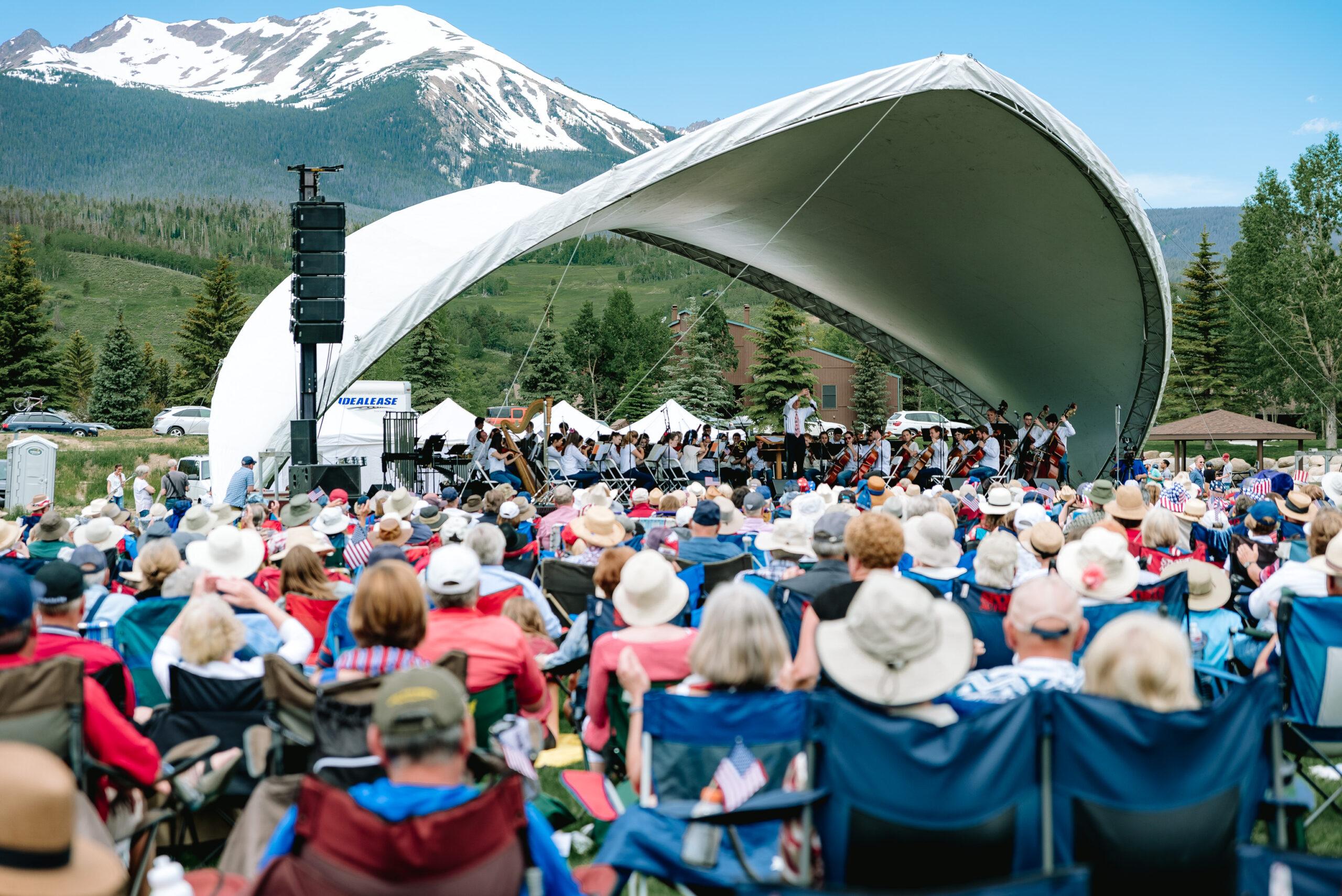
America is a melting pot and its classical music is no different. The 4th of July is the perfect time to celebrate the diversity in American concert music. We asked you what your favorite American music was, and you delivered! We’ve put together the perfect soundtrack for the upcoming weekend.
Read on to see what pieces CPR Classical listeners picked and why they are so impactful.
"Short Ride in a Fast Machine" by John Adams
Imagine sleek red paint and tons of horsepower thundering down the open road. That’s what John Adams had in mind for “Short Ride in a Fast Machine.” And right off the bat, “Short Ride” starts with what Adams describes as quintessentially American music, with “incessant pulsation.”
Gary in Boulder says it's “so full of energy. Super frantic and it really puts you in the passenger seat of a sports car.”
"Appalachian Spring" by Aaron Copland
Copland first called "Appalachian Spring" “Ballet for Martha,” representing that he was writing it for dancer Martha Graham’s new ballet. Copland had already helped to create the sound of the American west with “Billy the Kid” and “Rodeo,” but with "Appalachian Spring" he leaned into a different aspect of American folk music to tell the story of a pioneering young couple. "Appalachian Spring" won the Pulitzer Prize for Music in 1942.
Paul in Colorado Springs calls it “Quintessential Americana. Close to the American Pioneer spirit. Transports me back in time to the 1980 Olympic games opening ceremony in L.A. and how proud I felt of America's welcome to the nations of the world.”
"Quiet City" by Aaron Copland
“Quiet City” was written for a play of the same name by Irwin Shaw about a man who put aside his dreams for money and success to deal with the ramifications of ignoring who he really was. The lonely trumpet of Copland’s music reflects the main character’s struggle.
Robert in Centennial picked Quiet City. “Grew up in New York and spent some quiet moments hearing distant sounds echoing thru the canyons of skyscrapers and other buildings. That’s what Copland evokes in this piece.”
"Grand Canyon Suite" by Ferde Grofé
Some memories last a lifetime. Ferde Grofé certainly never forgot seeing the Grand Canyon when he scrambled out of his jeep at sunrise after a cross-country road trip. He committed the sight to memory and nearly 15 years later, he wrote the “Grand Canyon Suite.”
“This was my first introduction to classical music, by a loving third grade music teacher,” says Connie in Englewood. “When I hear the music I can put myself into the marvelous setting of the Grand Canyon, a place I didn't see for myself until I was over fifty years old.”
Symphony No. 50 "Mount St Helens" by Alan Hovhaness
Hovhaness captured an American moment in history felt around the world with the third movement of his Symphony No. 50: The eruption of Mount Saint Helens. The whole symphony walks through the idyllic mountain before the event and in the aftermath of the destruction.
Douglas in Denver says, “It's a wonderfully natural piece, with the second movement ("Spirit Lake") being especially lovely. The build up to the explosion, in the third movement, is thrilling and almost frightening. Altogether a fabulous work.”
"Variations on America" by Charles Ives
At 17, Charles Ives was the local church organist looking ahead to college.. But even at that young age, his passion for music was unmissable, and he wrote his “Variations on America” on organ, and even described it as “almost as much fun as playing baseball.”
“A tune we all know from elementary school days scored by an American composer who obviously loved this country,” said Robert, a listener from Blacksburg, Virginia. “The variations are very diverse exploring many musical styles of harmonic idioms and rhythmic inventions without ever losing the thematic thread. I have been in wind groups that have played it and conducted my own high school band in performing it when I was a teacher. Long retired, I still enjoy this piece every time it is played especially by a good band, be it high school, college or community.”
"Fanfare for the Common Man" by Aaron Copland / "Fanfare for the Uncommon Woman" by Joan Tower
Copland answered the call to write a fanfare honoring those who were part of World War II. Mark in Westminster says, “It is flat out an inspiring piece of music, in large part because of its simplicity.”
And Mayanne from Nederland picked Joan Tower's "Fanfare for the Uncommon Woman,” which offered a fun play on Copland’s fanfare more than 40 years later: “It answers Copland's ‘Fanfare for the Common Man’ in an ingenious way.”
Join CPR Classical as we share these comments and more throughout the day on July 4th along with a soundtrack showcasing Americans of all kinds of perspectives. And tune in for a colorful musical display at 8 p.m. for some of the best musical fireworks to keep you company all hour.
Hear CPR Classical by clicking “Listen Live” at the top on this website, or download the Colorado Public Radio app. Listen on your radio to CPR Classical at 88.1 FM in Denver, or on radio signals around Colorado. You can also tell your smart speaker to “Play CPR Classical."









